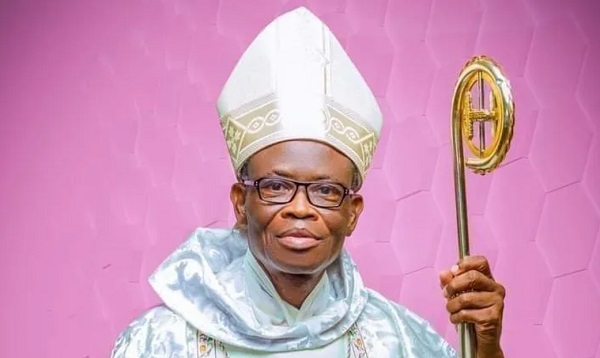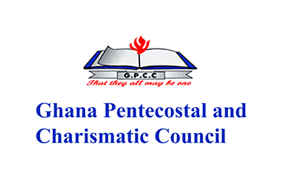US Charity to Provide $1 Million in Food to Help Displaced Iraqi Christians This Christmas
The World’s largest Catholic fraternal service organization, Knights of Columbus, will give $1 million-worth of food supplies to an Iraqi archdiocese to ensure that thousands of Christians displaced from their homes by the Islamic State are able to enjoy the Christmas season a little bit better this year.
At a press briefing with reporters Tuesday morning, Knights of Columbus CEO Carl Anderson announced that his Connecticut-based organization is donating up to $1 million in food that will benefit over 15,000 Iraqi families that were forced out of their homes and villages in the Nineveh Plains when IS (also known as ISIS, ISIL or Daesh) took over in 2014.
“Knights of Columbus will be providing $1 million in food supplements this Christmas to the Archdiocese of Erbil to help these 15,000 families enjoy Christmas a little better,” Anderson said, adding that the donation is not meant to be a material gift but rather an “expression of our solidarity.”
The donation comes as the Knights of Columbus, which has been one of the most active U.S.-based organizations in supporting displaced Christians in the region, has raised over $17 million in the last three years to help Christians displaced by the Islamic State in Iraq and Syria.
Earlier this year, the organization followed in the footsteps of the Hungarian government by donating $2 million to the Chaldean Archdiocese of Erbil to help rebuild a once predominantly Christian town decimated by the jihadi death cult.
The press briefing was held at the National Press Club in accordance with the U.S. Catholic Church’s declaration of a weeklong observance to raise awareness for the situation facing Iraqi and Syrian Christians who were targeted for genocide by IS.
The Chaldean Archbishop of Erbil, Bashar Warda, who runs the archdiocese directly responsible for helping clothe, feed, shelter and council the thousands of Iraqi Christians who sought refuge in the Kurdish north, also spoke at the press briefing.
Warda stressed that with the Christmas season fast approaching, the displaced Christians are reminded that despite their situation, God has not let them down.
“Christmas is really very special, a celebration for the Christians of Iraq, especially when we meditate on the Holy Family, who was also displaced on the roads to Bethlehem, to Egypt. So this is a very spiritual and powerful message to always meditate on,” Warda said. “We know that despite all of these difficulties that [Christian families have faced], we do believe that the providences of God have not let us down. We have discovered the hands of mercy via the [charity] that has been shown to us over the last three years and a half. It’s made us live with difficulties but with dignity.”
Although the archdiocese has received millions of dollars in donations from groups like Knights of Columbus and Aid to the Church in Need, Warda said that the Iraqi government’s recently imposed ban on international flights to Kurdish airports in response to a Kurdish independence vote earlier this fall has made it much harder for international humanitarian aid to get to displaced Christians and other religious minorities in Iraq.
“Before the referendum, our liberated villages were under the attention of aid agencies that used to travel to Erbil and go to see these villages and evaluate the situations themselves and provide help,” Warda explained. “Closing the airports has affected very much the help. Now, we have no one coming to these villages. We are afraid that this will affect the level of help. That is why we have requested from the government of Baghdad to provide more help and more assistance to those who would like to visit and provide help.”
“We as a church … we were never asked to centralize all the help,” Warda added. “We were there to help others helping us.”
Warda also praised President Donald Trump and Vice President Mike Pence, who announced earlier this month that the United States government will aim to provide direct humanitarian and reconstruction assistance directly to organizations on the ground that are helping the displaced religious minority communities in Iraq without having to rely on the United Nations.
A long-running complaint from Iraqi Christian leaders and advocates has been that the billions of dollars in humanitarian aid spent by the U.S. government in Iraq was not reaching the Archdiocese of Erbil and other groups that are aiding the religious minorities who didn’t seek shelter in U.N. camps because of fear of persecution.
Additionally, the U.N. has been accused of overstating the amount of support it has provided in helping Christian communities rebuild their hometowns.
“I am grateful to the Trump administration. Vice President Pence’s remarks last month about helping the communities targeted for genocide was incredibly [heart-warming] for the Christians and Yazidis in Iraq,” Warda said. “It marks an important shift because it shows that the American government considers the situation of those who suffer this persecution at the hands of ISIS to be a priority.”
“Of course, we hope that the aid will move swiftly to help our people who previously have felt they were forgotten,” he continued. “We are also ready and committed to working with the United States government as we have previously the Hungarian government to help ensure that the aid they provide is put to the most effective use possible to save our communities, the communities who we have cared for since 2014.”
Stephen Rasche, the general counsel for the Archdiocese of Erbil and the president of the Nineveh Reconstruction Committee, which represents the rebuilding interests of the Chaldean and Syriac churches, also praised the Trump administration for intervening to prevent an armed conflict from occurring between Kurdish and Iraqi forces in the once predominantly Christian town of Telskuf at the end of October.
Telskuf was in part rebuilt by a $2 million donation from the Hungarian government to the archdiocese and was seen as somewhat of a model for the return of Christians to their hometowns in Nineveh. But when conflict between the Kurds and Baghdad looked imminent late last month, hundreds of Christian families who had resettled in the town were forced to flee again.
Thanks to the intervention from the U.S. government, a battle never occurred in the town and most of the Christians were able to return the next day. A source told The Christian Post last month that the destruction of Telskuf could have been “the beginning of the end of Christianity in Iraq” because there are “so few towns left that every one of them is precious.”
“I want to thank all the angels that are working on the land,” Fr. Salar Kajo, the parish priest of Telskuf who was one of the few people who stayed behind in the town when the conflict erupted between the Kurds and Baghdad last month, said. “We ask to keep maintaining the peace there and to help us return to our villages and have a normal life as we had before ISIS.”
As part of the week of awareness, Rasche, a U.S. citizen, explained that he and the Iraqi Christian leaders were also in Washington this week to meet with government officials.
“We are tremendously encouraged by the language that has come from the administration but we caution everybody to remember that the hour is well past midnight for the Christians to be returning in Nineveh,” He asserted. “So the time for action is now and we are hopeful that will happen.”
Source : Christianpost





